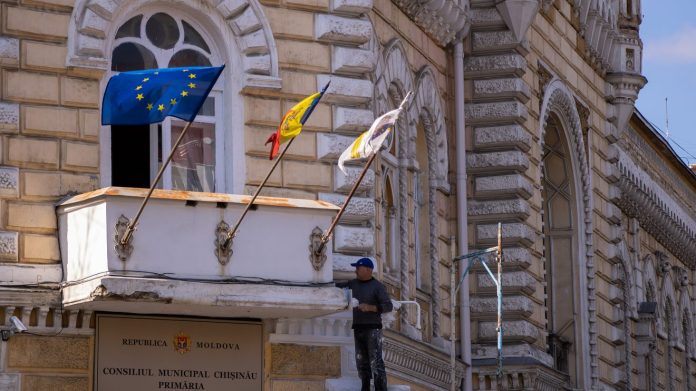Days away from Brussels’ assessment of the questionnaires submitted by the Republic of Moldova, Ukraine and Georgia, the prospect of being granted EU candidate status is fuelling not only the three countries’ pro-Western ambitions, but also their resilience in facing current security challenges, according to Emerging Europe.
It’s only natural for a country like Moldova, with its troubled history and newfound energy after the July 2021 legislative elections, to aspire to become part of the European family. The country is more than ready to put in the necessary work and its leaders know very well that this is no easy task. Moldova has already worked hard to mobilise an inclusive national effort of the authorities, civil society, the business environment and the diaspora to complete the answers to the Commission’s questionnaires in the shortest period of time.
However, the country is not looking for any shortcuts, but for an opportunity to show what it is capable of, and for a real chance at a renewed, European-inspired nation-building project.
It’s also natural for the European capitals expected to endorse Moldova’s EU bid to question their own gains – and in response, we shall recall the value of enlargement in the case of Romania and Bulgaria, as the two countries’ joining the EU was also an enlargement of the space of shared values and prosperity, and of the markets for European investors, to name just a few benefits.
Furthermore, the European perspective of countries in the Western Balkans also allowed for an extension of the alignment to EU policy and standards, which has proven valuable even in the current security context.
In this context, the country can certainly do even more and go to even greater lengths in its European path to democratic transformations. Moldova needs candidate status and effective support for its EU membership perspective. This will be both a clear target and strong political message to mobilise a majority of citizens who share the same ambitions, and are either part of the civil society, the business community, the political spectrum, or regular citizens.
You can read the full article here. Don’t forget to follow us on FACEBOOK!


